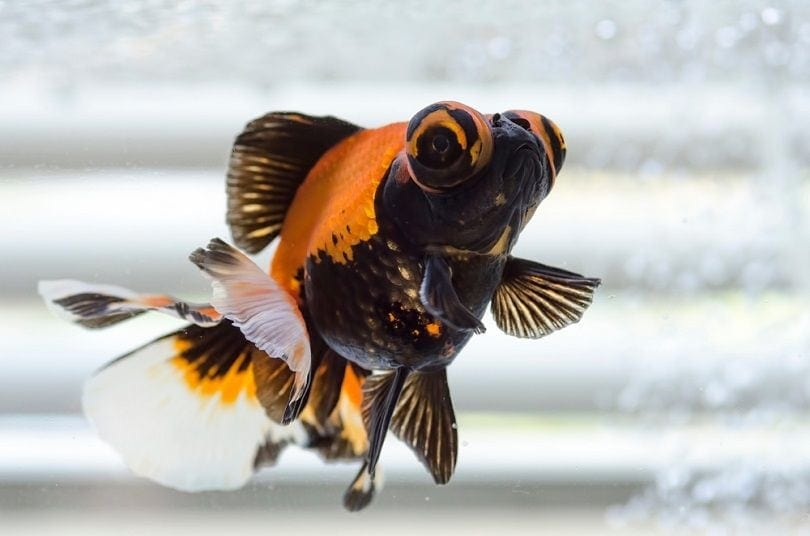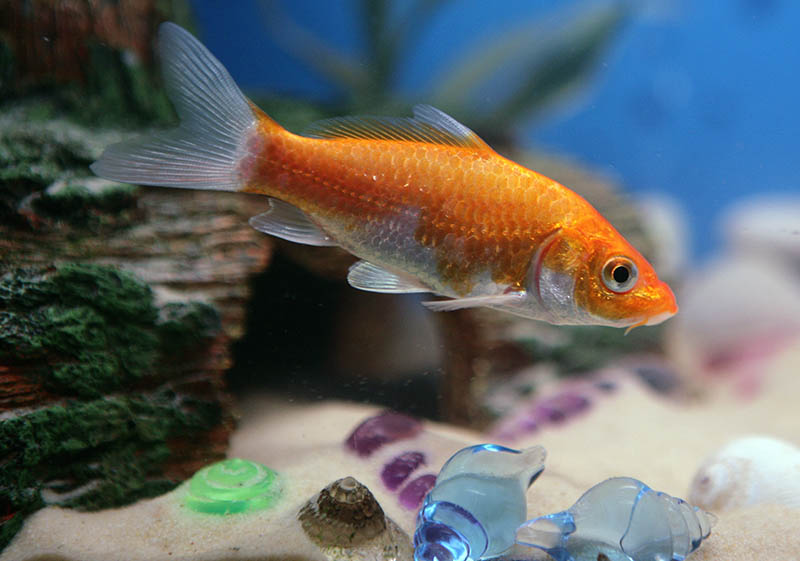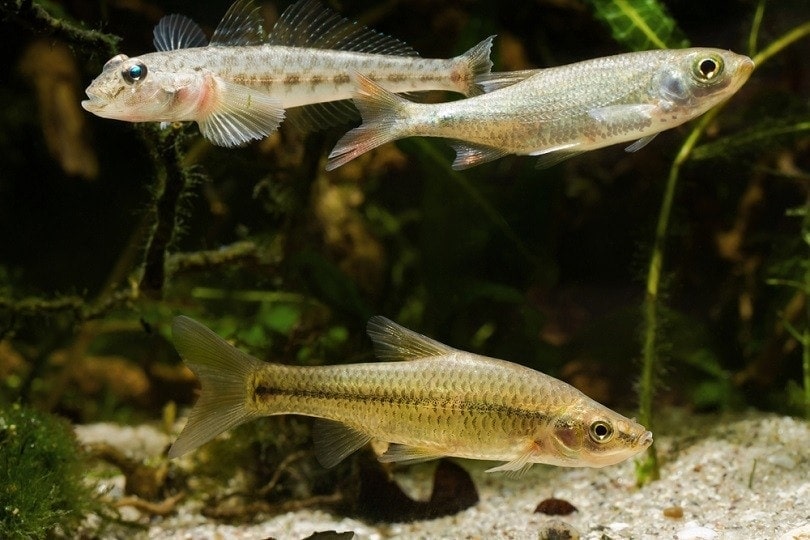Goldfish vs Tropical Fish: Which Pet is Best for You? (With Pictures)

Updated on
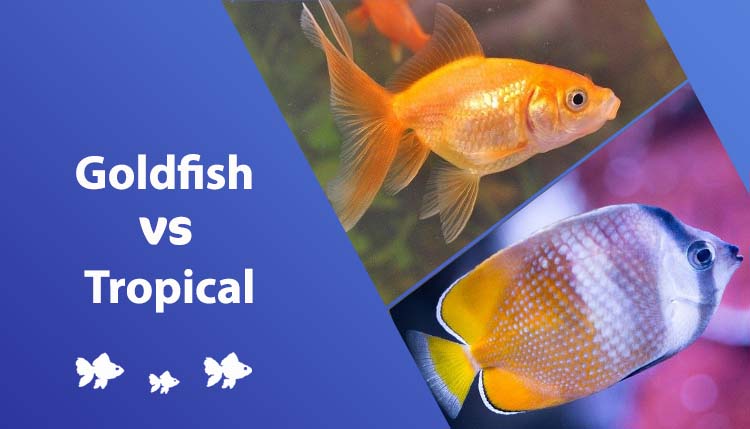
Goldfish are the staple beginner fish due to their hardiness and ease of care. They can be flashy and beautiful, but some people find them too “normal” and opt for more unique fish. Freshwater tropical fish come in a variety of shapes, sizes, colors, and temperaments, which means that there are tropical fish available for any fish keeper’s abilities.
However, many people don’t realize that goldfish are cold or cool water fish, so they will not thrive in a tropical environment. The opposite is true for tropical fish, most of them will not thrive in cool environments. This means that if you’re intending to get one aquarium set up, then you’ll need to choose between freshwater tropical fish or goldfish instead of attempting to put them in a tank together.
Here are the things you need to know about goldfish vs tropical fish to help you pick the best fish for your aquarium.
Visual Differences
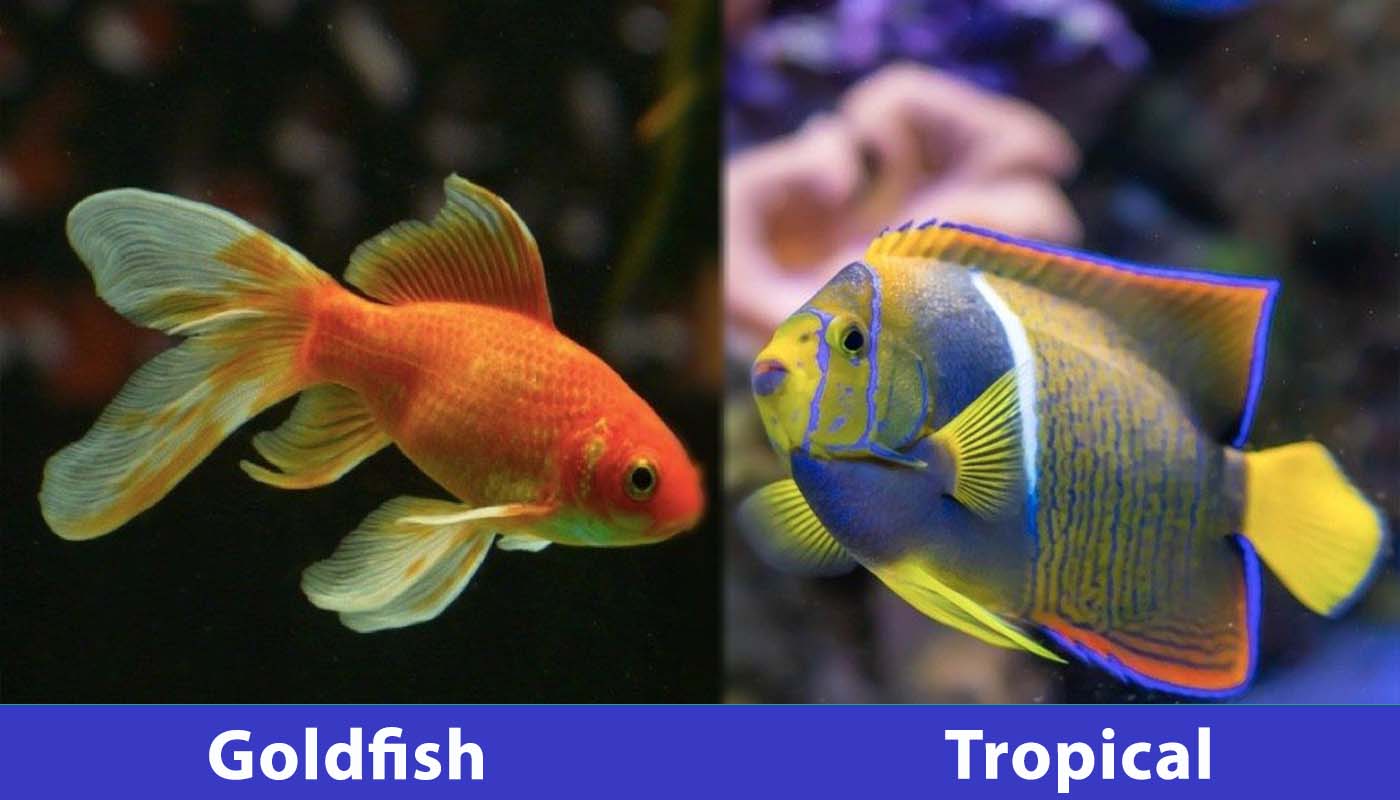
At a Glance
- Average length (adult): 10-12 inches, up to 14 inches
- Average lifespan: 10 – 14 years, up to 40 years
- Diet: Pellets, flakes, gel food; live, frozen, or freeze-dried food; diet can be supplemented with fresh foods like spirulina and a wide variety of fruits and vegetables
- Water parameters: 65-75˚F, pH 7.0-8.4, 0 nitrites, 0 ammonia, 0-20ppm nitrates
- Care level: Easy
- Temperament: Peaceful; Will eat any fish or invertebrates they can fit in their mouths
- Colors and patterns: Orange, red, yellow, white, chocolate, blue, black, grey, silver; Self-colored, bicolor, or tricolor
- Average length (adult): ½ inch-10+ feet
- Average lifespan: 1-25+ years
- Diet: Pellets, flakes, gel food; live, frozen, or freeze-dried food; diet can be supplemented with fresh foods like spirulina and a wide variety of fruits and vegetables depending on the species
- Water parameters: 72-86˚F, pH 5.5-8.0, 0 nitrites, 0 ammonia, 0-20ppm nitrates
- Care level: Easy to difficult
- Temperament: Peaceful to aggressive
- Colors and patterns: Variable from transparent, self-colored, multicolor; nearly unlimited pattern options
Goldfish Overview
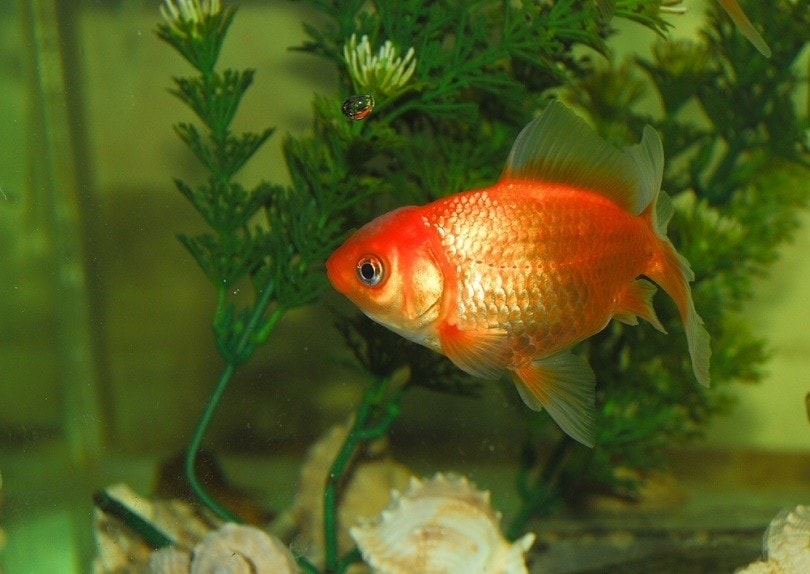
Temperament:
Goldfish tend to have friendly, social personalities with peaceful temperaments. Sometimes, they may nip or bully tankmates, but this is uncommon. Goldfish will, however, eat just about anything they can fit in their mouths. This applies to everything from snails to dwarf shrimp to fry and other small fish. Goldfish are intelligent, though, and can learn to recognize people by appearance and sound and can recognize colors and shapes. They can even be taught how to perform simple tricks and can often be seen begging for food at mealtimes or when they see the person who usually feeds them.
Appearance:
Goldfish come in dozens of varieties, each with a unique appearance. They are broken down into single-tail and double-tail or fancy varieties. Single-tail goldfish tend to be faster than fancy goldfish and can outcompete slower tankmates for food. They also have more streamlined bodies and get larger than most varieties of fancies. Fancy goldfish may have round bodies, lack dorsal fins, or have a facial growth called a wen.
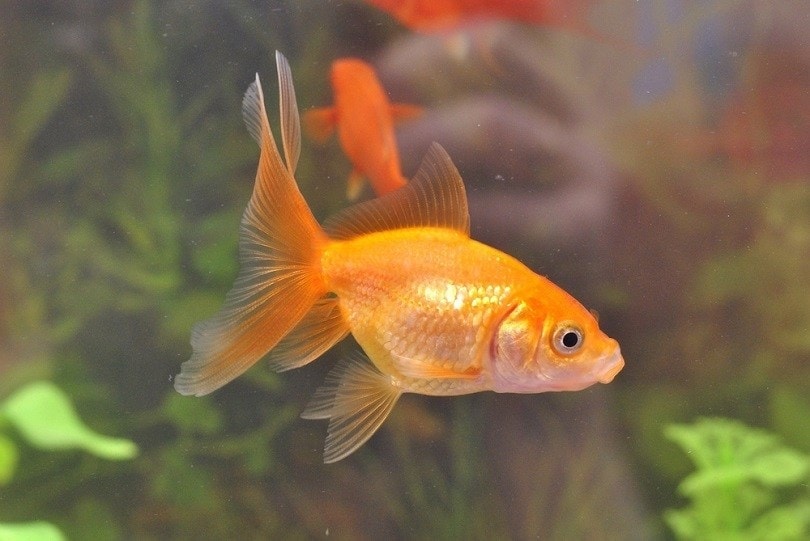
Keeper Considerations:
Goldfish love to eat! They will uproot plants, eat smaller tankmates, and will even eat their own eggs and fry. Goldfish are stressed by tankmates that nip at their fins, especially fancy goldfish that cannot outswim this abuse. Goldfish create a lot of waste, adding to a tank’s bioload quickly. They should not be housed with fish that are sensitive to water parameter changes or that require pristine water.
Suitable for:
Goldfish are suitable for a variety of tank setups and can make good tankmates to most peaceful cool water fish and invertebrates that are too large to be eaten. Single-tail goldfish and some varieties of fancy goldfish can be kept outdoors in ponds and can tolerate below-freezing temperatures as long as there is a hole in the ice to allow for water oxygenation.
Tropical Fish Overview
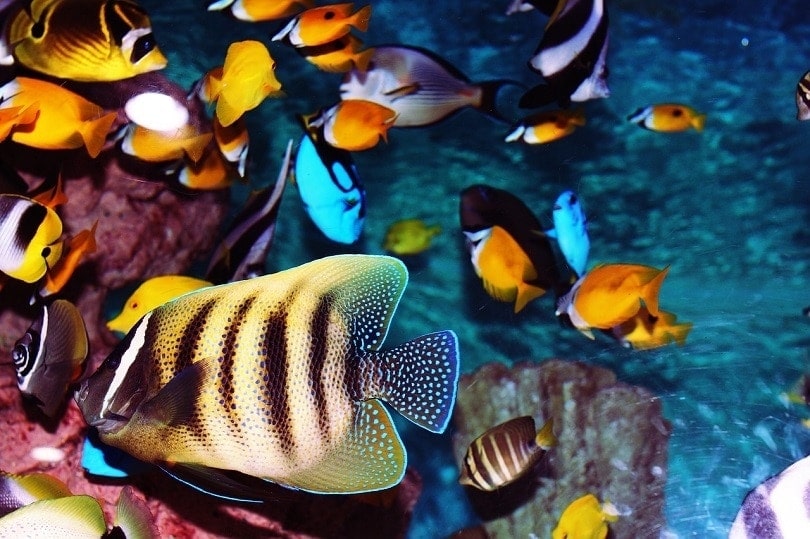
Temperament:
Tropical fish temperaments can range anywhere from peaceful to aggressive and social to independent. Shoaling or schooling fish, like most varieties of tetras, tend to be peaceful and make great additions to tropical community tanks. Many types of cichlids, however, must be housed alone or only with fish of their own kind due to their aggressive nature.
Appearance:
The appearances of tropical fish can be vastly different from each other. Some varieties of tropical fish, like ember tetras, are brightly colored with distinctive markings and only grow to around ½ inch in length. Other freshwater tropical fish, like the Paroon shark, are more dull-colored, have somewhat nondescript markings, and can reach up to 10 feet in length, although they rarely reach this size in captivity.

Keeper Considerations:
Tropical freshwater fish, no matter the size, should be kept in water at an appropriate temperature. Many tropical fish species cannot survive in water that is too cool. If they can survive, they rarely thrive in cool water environments. Also, make sure to thoroughly research the water parameter preferences and appropriate tankmate matches for whatever tropical fish you choose to keep, especially if your goal is a community tank. Ensuring you get an appropriately sized tank for the size and number of fish you get is especially important.
Suitable for:
Aquariums with heaters are essential in most areas for tropical fish to thrive. It’s not advisable to keep tropical fish in ponds unless you live in a tropical area since most tropical fish will not be able to survive the winter outdoors. Many freshwater tropical fish are suitable for community tanks while other types may need to be alone or in species-only tanks.
Which Breed is Right for You?
One of the easiest ways for you to decide whether you want goldfish or freshwater tropical fish is to decide if you want to keep an aquarium with a heater. Goldfish often do not require heated tanks since most homes are kept at safe temperatures for goldfish. Tropical fish, on the other hand, will almost always require a heated tank unless you live in a tropical area without air conditioning.
- Common
- Comet
- Shubunkin
- Oranda
- Fantail
- Ranchu
- Pearlscale
- Black Moor
- Telescope
- Tetra
- Rasbora
- Barb
- Guppy
- Molly
- Gourami
- Danio
- Cichlid
- Angelfish
- Loach
- Plecostomus
- Oscar
- Betta
Conclusion
Tropical fish are sought after for their bright colors and unique features, but goldfish are often underappreciated for their unique color patterns and beautiful, flowing fins. Tropical fish can be easy to care for or difficult, depending on the fish and the tank environment. Goldfish are extremely hardy, able to withstand the learning curve that usually comes with the learning stages of fishkeeping.
Whichever type of fish you decide on, make sure to thoroughly research the fish you intend to bring home. Not all goldfish can be kept together due to speed, personality, and competition for food, and the same goes for tons of types of tropical fish. Regardless of what types of fish you decided on, have a tank set up and cycled before you bring them home.
Featured Image Credit: (L) Val Krasn, Shutterstock, (R) Skitterphoto, Pixabay




